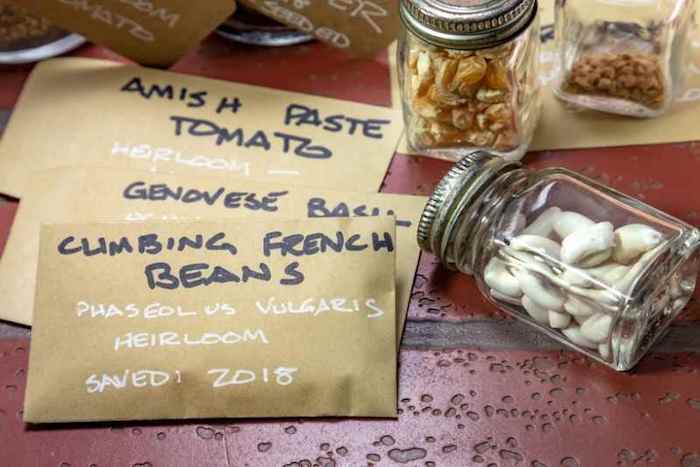
How Long Can Seeds Be Stored and How Should You Store Them?
If you are getting seeds in from your garden or if you’ve bought some from a local garden centre, you might be wondering how soon you need to use them up. How long do seeds last before they go bad?
This depends heavily on the kind of seed and the storage conditions. Some types of plants do not produce seeds that keep well; these need to be used up considerably more quickly, and may only last a year. Many last between 2 and 4 years, while some could last up to 10 years if they are kept in perfect conditions.
In this article, we’re going to talk about how long certain kinds of seeds tend to last, and explore which kinds of seeds last longer than others. We will also look at how you should store seeds to maximize how long they will last.
How Long Do Various Seeds Last?
The longevity of any kind of seed is hard to predict, although perennials generally last longer than annuals. Annual seeds tend to be okay for 1 to 3 years, while perennials will often last for 2 to 4 years. However, this is a generalisation and it won’t hold true for all seeds in these categories.
You may find the below list helpful for getting an idea of how long most seeds last:
- Parsley seeds: 1 year
- Eggplant seeds: 4 years
- Cauliflower seeds: 4 years
- Carrot seeds: 3 years
- Pumpkin seeds: 4 years
- Brassica seeds: up to 7 years
- Tomatoes: up to 8 years
- Onions: 1 year
- Parsnips: 1 year
- Lettuce: 1 year
- Sweetcorn: 2 years
- Pepper: 2 years
- Spinach: 3 years
- Watermelons: 4 years or longer
- Peas: 3 years
As you can see, it varies greatly between seeds, and even then, these are only estimates that do not particularly guarantee one way or another that the seeds will remain viable. How you store them has an enormous effect on their longevity, and if you don’t take steps to ensure good storage, even seeds that usually last well will quickly become unviable.
You must therefore harvest and store seeds using the correct method if you want them to be okay to plant year after year – or possibly even just the following year. Improper storage can make seeds unviable in less than 12 months, so storage matters a lot even if you usually plant your seeds each spring.
How Should You Store Seeds?
The first step of storing seeds correctly is drying them. A lot of seeds, especially from fruit and vegetables, come wrapped in pulp that will need to be removed before the seed can be stored. You must wash this off and then set the seeds on a sheet of clean kitchen towel or another absorbent surface.
- The seed must be perfectly dry
- The seed must not be exposed to bright light
- The seed must not be heated
Exposure to moisture, light, or warmth will encourage the seed to sprout, and if it does this, it will expend its energy on a failed attempt to germinate. Once it has tried to germinate, it will become unviable, because it will have no energy remaining for a second attempt. That means that when you try to sprout it the following year, nothing will happen.
You must therefore make sure your seeds are stored in conditions that are dry, cool, and dark. This keeps the seeds dormant, and they can stay this way for many years. A lot of people opt for an opaque container in a cool cupboard, and some people even use silica gel bags to absorb any atmospheric moisture.
What Else Do Seeds Need While Being Stored?
Another thing that you need to think about is protecting your seeds from pests. A lot of animals will very gladly eat seeds if they get an opportunity to do so, and this will obviously kill the seed. Mice and rats are key seed predators, but insect damage can also be a problem in some circumstances.
You should therefore avoid storing seeds in an outdoor shed or greenhouse unless you are able to put them in a locking metal box. Remember that rodents have very sharp teeth and they can gnaw through many other materials if they think there is a food reward on the other side.
It’s best to store seeds inside your home, away from rodents and other pests. A lot of people dedicate a cool cupboard in their kitchen to seed storage. It’s worth noting that you can’t always tell when seeds are no longer viable just by looking at them.
Should You Freeze Seeds?
Some people choose to freeze their seeds to make sure they last year after year. You can do so, but if your freezer temperature fluctuates, there is a risk that this will stop the seeds from germinating later. You must be able to reliably keep them chilled if this is going to help.
On the whole, freezing seeds isn’t necessary in a domestic setting. You might choose to do this for some of the seeds that have a shorter lifespan, but it’s usually better just to collect some of the crop each year instead and store it as you normally would. Most people find that this offers them better results, provided that they store the seeds well.
Conclusion
How long you can store seeds depends heavily on the kind of plant you are working with. Some will last for far longer than others, and knowing their average longevity is important when you start saving seeds. Put them in a dry, cool, dark place and they should last for at least 1 year, and possibly much longer.












